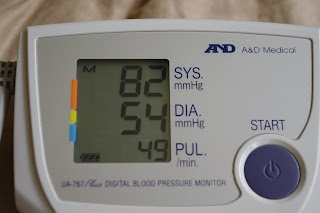What is a rare disease?
It is estimated that there are 6000 to 8000 rare diseases in the world today
Characteristics of rare diseases
- Rare diseases are often chronic, progressive, degenerative, and often life-threatening
- Rare diseases are disabling: the quality of life of patients is often compromised by the lack or loss of autonomy
- High level of pain and suffering for the patient and his/her family
- No existing effective cure
- There are between 6000 and 8000 rare diseases
- 75% of rare disease affect children 30% of rare disease patients die before the age of 5
- 80% of rare diseases have identified genetic origins. Other rare diseases are the result of infections (bacterial or viral), allergies and environmental causes, or are degenerative and proliferative.
You have what? How many times have I heard that? For those of you who have read my blog for any length of time, you are well aware that I have demonstrated the intellect of a wet tissue by picking a disorder that no one has ever heard of. And I don't just mean people in the general community, even most doctors haven't heard of it, don't know how to recognise it, how to test for it or how to treat it. Good old Dysautonomia the bane of my existence. There are some more common forms, but I have been stupid enough to pick a rare version of this obscure disorder. Despite three years of testing I still remain a medical mystery, the proverbial "Horse With No Name". Collecting new and exciting symptoms and comorbid diseases along the way.
I thought getting in to see the top specialist in the country (or the Wizard of Oz as I like to call him) I would have an answer, but no, that would be too easy. Instead I got the line you always hope to get from your doctor (yes that's sarcasm):
Also from my normal cardio:
Or from my neuro:
"you really are a medical mystery aren't you?"
Then there have been the miscellaneous words like:
I've also been told (repeatedly) that I may have Pure Autonomic Failure (PAF). What's so rare about that? Well PAF generally occurs in males over the age of 60, not 36-year-old women. So there you go. Not only am I not an 80-year-old woman, I may in fact be a a 65-year-old guy who pees like a horse and can't get it up. YAY! Maybe I just need a viagra.
There are no answers when you are odd.
So you live your life with the knowledge that you are getting worse and the reality that it doesn't look good. Times like these tequila sounds good.
I'm not alone in this. There are many obscure diseases and disorders around, with some that are unique to 1 or 2 people in the world. Gene deletions or multiplications in a variety of forms. Some caused by viruses or bacteria or unique environmental contamination. Idiopathic (doctor speak for I have no idea why you have it) disorders. Some little quirk of nature that creates a unique illness.
Unfortunately when you have a rare disorder there is little funding for research or treatments. In many cases the top specialists are flying blind, using trial and error to treat their patients. When things are rare it is hard to develop a standard treatment program. Governments look at the big picture, so funding goes to those disorders that affect the most people.
Rare diseases don't have the PR machine of other disorders eg Breast Cancer or AIDS. Government programs often don't have categories for these disorders, so patients find it extremely hard to get financial aid or access to rehabilitative programs.
World Rare Disease Awareness Day is a chance to bring attention to these hidden diseases. To remind people that they exist and to give them a face.
Whether you call it Rare, Special, Unique, or Medical Mystery, it can be a hard road to travel when you have the disease no one has heard of, is difficult to treat, understand or explain.
Cheers
The Freak Michelle :)










